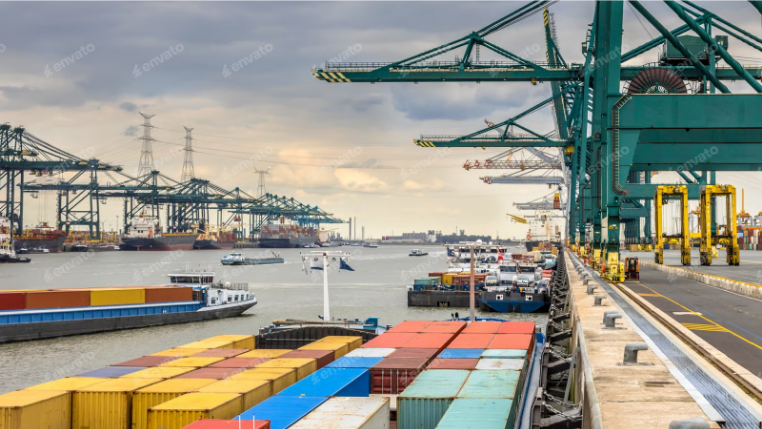Modaltrans
logistics journal




300+
Trusted By 300+ Companies

24 Oct 25
Avoid Invoicing Mistakes in Freight Forwarding
In the high-stakes world of freight forwarding, a single missed invoice can wipe out your entire profit on a shipment. This guide tackles common invoicing pitfalls head-on, outlining a three-step process for creating a reliable and efficient workflow. Learn how to manage estimates, ensure timely invoicing, and leverage accurate Profit & Loss reporting to secure your revenue and improve cash flow.
Read More

08 Oct 25
Avoiding the Pitfalls: 7 Common Supply Chain Management Mistakes
In today's dynamic market, an agile and resilient supply chain is crucial for business growth. However, many companies fall into common traps that hinder efficiency and lead to increased costs. This guide identifies five of the most critical mistakes in supply chain management, from a lack of strategic planning to poor inventory optimization. Learn how to avoid these pitfalls and build a robust, responsive, and customer-centric supply chain for lasting success.

08 Oct 25
The World's Largest Ports: A Global Network of Trade and Commerce
Ports like Shanghai, Singapore, Rotterdam, Busan, and Los Angeles are far more than logistics hubs—they are lifelines of global trade. With advanced infrastructure and massive cargo volumes, they connect nations, fuel economies, and ensure goods flow seamlessly across continents.

06 Oct 25
Top 5 Major Ports in China
The top 5 major ports in China—Shanghai, Ningbo-Zhoushan, Shenzhen, Qingdao, and Xiamen—are critical gateways for international trade and global logistics. Each port strengthens China’s dominance in commerce, with Shanghai leading container throughput and Xiamen serving as a Southeast Asia hub. With world-class infrastructure, advanced technology, and seamless connectivity, these ports keep supply chains moving efficiently. For freight forwarders and logistics providers, knowing the strengths of these ports is key to navigating global trade successfully.

06 Oct 25
Top 5 Biggest Container Ships in the World 2023
The biggest container ships in the world are redefining global logistics, with capacities ranging from 23,000 to 24,000 TEUs. Giants like MSC Sixin, CMA CGM Jacques Saadé, Ever Ace, Ocean Alliance vessels, and HMM Algeciras showcase cutting-edge technology, efficiency, and record-breaking size. These mega-ships are set to transform freight forwarding by carrying unprecedented cargo volumes while reducing costs and emissions. For logistics professionals, staying ahead of these developments is essential to remain competitive in the shipping industry.

06 Oct 25
Data-Driven Freight Management: A Guide to Optimizing Your Supply Chain
In today's competitive logistics landscape, relying on intuition is no longer enough. Data-driven freight management has emerged as a transformative solution, providing companies with the insights needed to optimize every aspect of their supply chain. This guide explores the core benefits of leveraging data analytics and automation, from improving performance and reducing costs to enhancing vendor relations and ensuring a resilient supply chain.

06 Oct 25
Uncovering The Differences Between Logistics and Supply Chain Management
In the world of global commerce, the terms logistics and supply chain management are often used interchangeably, but they are not the same. While one is a tactical function focused on the flow of goods, the other is a strategic framework that governs an entire business ecosystem. This definitive guide will clarify the core differences, explain their individual functions, and illustrate how they work together to create a seamless and efficient business operation.

06 Oct 25
FOB in Shipping: A Complete Guide to Its 4 Key Terms
In international trade, FOB (Free on Board) is a critical term that determines who is responsible for goods during transit. It's more than just a label—it's a legal and financial designation that affects everything from freight costs to liability for damage. This guide demystifies the four key ways FOB is used in shipping documents, helping you understand the difference between FOB Origin and FOB Destination, as well as Freight Prepaid and Freight Collect.

06 Oct 25
Streamline Your Business with Freight Invoice Automation – the Advantages You Need to Know
Freight invoice automation is transforming logistics by eliminating manual data entry, costly errors, and delayed payments. By leveraging AI, OCR, and machine learning, businesses can streamline invoice processing, enhance accuracy, and uncover hidden savings. For freight forwarders and shippers, adopting freight invoice automation means faster approvals, reduced costs, and stronger carrier relationships.
.avif)
.avif)


